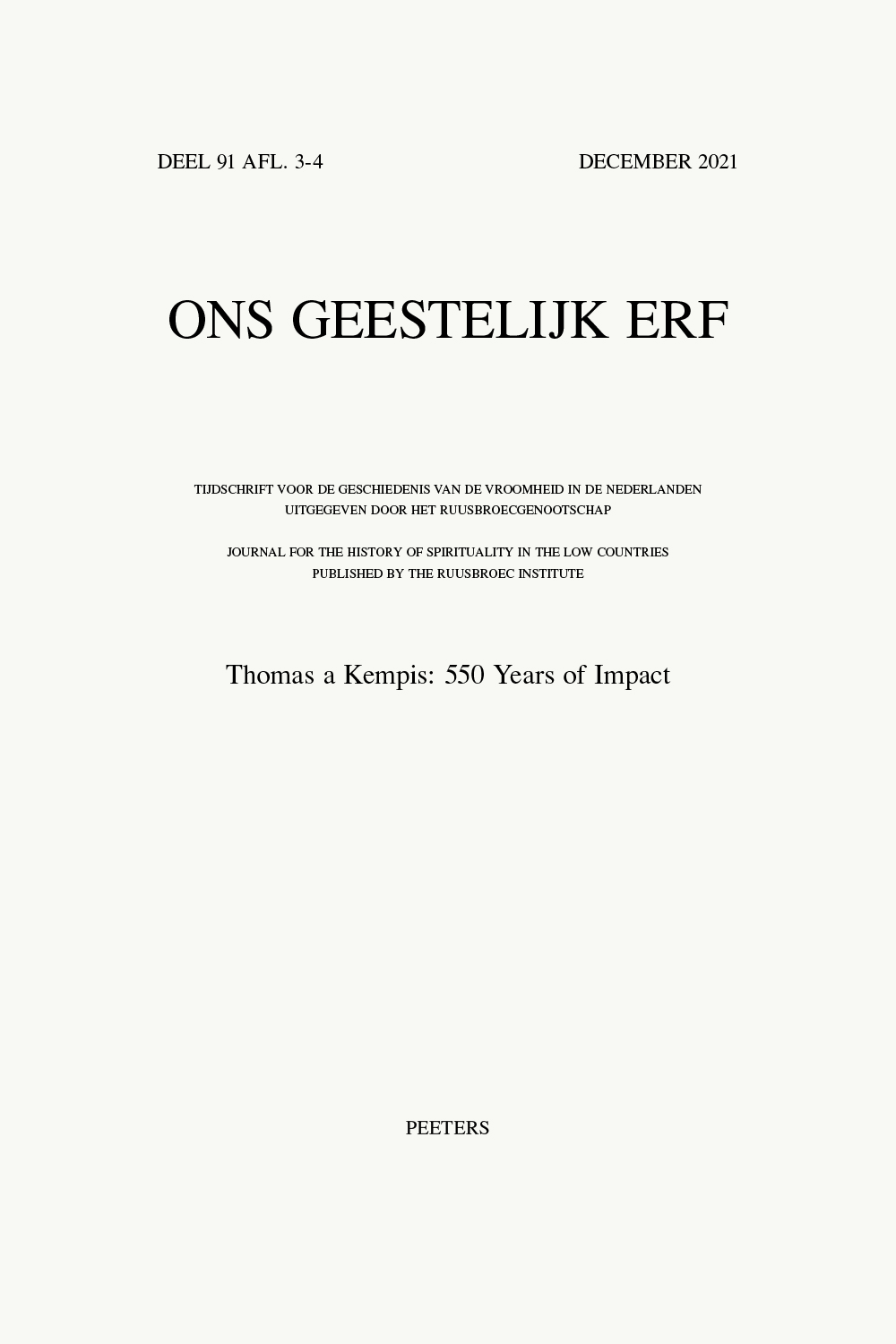 previous article in this issue previous article in this issue | next article in this issue  |

Preview first page |
Document Details : Title: Ruusbroec en de crisis van de mystiek Author(s): KORS, Mikel M. Journal: Ons Geestelijk Erf Volume: 75 Issue: 1 Date: Maart 2001 Pages: 116-124 DOI: 10.2143/OGE.75.1.565523 Abstract : This article is an adaptation of the lecture given on the occasion of the publication of volumes 7-7A of Ruusbroec’s Opera Omnia, Vanden XII beghinen. Guido De Baere’s lecture given on the same occasion, has also been published in this journal: ‘De editie van Ruusbroecs Opera Omnia in wording. Bij het verschijnen van Vanden XII beghinen’ (74,3 (2000), p. 255-63). Vanden XII beghinen is the last treatise Ruusbroec completed, and it was probably not written before 1365. Modern readers tend to feel somewhat shocked by the flaws in the execution of this work: lack of structure, repetitions, and strange omissions, to name the main objections. It has even been suggested that Ruusbroec was not himself responsible for the composition of the Beghinen, but rather his confreres in the Monastery of Groenendaal. In the present article we defend the position that this is a work by Ruusbroec, despite its shortcomings, possibly due to his advanced age (Ruusbroec was already in his seventies). It is interesting to see, however, that the Beghinen is closely related to the battle against heresies amongst beguines and begards in the third quarter of the fourteenth century. Ruusbroec defends in this treatise an orthodox approach to mysticism and appeals to the great tradition of the thirteenth century. It seems rather paradoxical that Ruusbroec was, during his old age and especially after his death, accused of having held heterodox opinions. This shows that in the second half of the fourteenth century, the tide was against mysticism, even within a strictly orthodox framework. |
|


